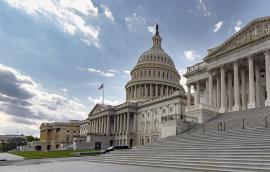Employment Impacts of Upstream Oil and Gas Investment in the United States
Technological progress in the exploration and production of oil and gas during the 2000s has led to a boom in upstream investment and has increased the domestic supply of fossil fuels. It is unknown, however, how many jobs this boom has created. Using time-series methods at the national level and dynamic panel methods at the state level to understand how the increase in exploration and production activity has impacted employment, this paper finds robust statistical support for the hypothesis that changes in drilling for oil and gas as captured by rig counts do, in fact, have an economically meaningful and positive impact on employment.
Mark Agerton, Peter R. Hartley, Kenneth B. Medlock III, Ted Loch-Temzelides August 22, 2014









